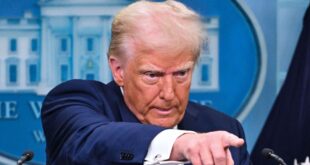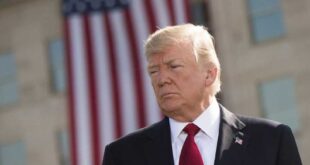Farzad Ramezani Bonesh
Senior Researcher and Analyst of International Affairs
Pakistan is one of the first countries established diplomatic relations with the UAE since 1971. Also, the meetings of political officials between the two countries have increased in the past year, and we have witnessed many developments in relations between the two countries. The following article discusses important and current opportunities in expanding relations between the UAE and Pakistan.
Political and geopolitical:
The UAE, as one of the richest countries in the Persian Gulf, seeking to become a major player in the Middle East, has engaged itself in the regional issues, so, reducing threats and increasing regional role is an important aspect of the UAE’s regional relations with Pakistan.
In this regard, the meetings of political officials of the two countries have increased in the past year, and in 2019 we have witnessed many developments in their relations.
Important points of the meetings between Sheikh Mohammed bin Zayed Al Nahyan, Crown Prince of Abu Dhabi and Imran Khan in Islamabad were as follows: attention to the development of bilateral relations between the two countries, development of cooperation, ensuring peace and stability in the region and emphasizing the fight against extremism and terrorism, attention to common concerns, the efforts of the international community to achieve peace and security in the region and the world, and so on.
In fact, the two countries seem to have common concerns in the Middle East and the Islamic world, as well as regional and international issues. They try to support constructive initiatives and efforts to achieve development, security and peace at the regional level and to face various regional and international challenges.
From the UAE’s point of view, Pakistan is an important country in the regional peace and security equation, so it deepens strategic relations with Pakistan and considers it a strategic depth for the Persian Gulf region.
In terms of geopolitics, the port of Gwadar is part of the China’s Belt and Road project and could play an important role in transporting goods from China to the Middle East. The importance of the port, its strategic location in southwestern Pakistan, overlooking the Arabian Sea near the Strait of Hormuz, could be a way for the UAE to gain better access to Eurasia.
In addition, Gwadar is the end point of the economic corridor between China and Pakistan, and Islamabad is trying to include actors such as the UAE by examining the status of this major project.
Military Defense Cooperation:
After the independence of the UAE, Pakistan’s contribution to the development, training and equipping of key UAE military institutions such as the armed forces, the army, the police, air force, etc. has been important. Even now, while the UAE is looking for strong military allies, Pakistan can play a strategic role by having a strong and efficient army and many capabilities in producing defense needs.
In fact, the UAE, as a country with a small size and population, has major vulnerabilities, and its defense and security cooperation with a nuclear power such as Pakistan can be in line with the UAE’s defense and military goals and interests. At the same time, UAE has had major military and armed cooperation with Pakistan in order to increase its security level.
Therefore, the increase in military and defense cooperation with Pakistan in areas such as defense investment, implementation of joint military production projects and the expansion of defense relations have been considered by the UAE. Meanwhile, from Pakistan’s point of view, except from exchange earnings, the expansion of military and defense cooperation with the UAE is in line with Pakistan’s military and security interests.
Economic opportunities:
The UAE plans to minimize its dependence on oil revenues by 2050. The country ranks 37th in the world in attracting foreign direct investment. The tourism industry plays a special role in the country’s economy, and Dubai is the fourth largest city in the world in terms of tourist attraction.
On the other hand, Pakistan needs capital, oil and energy, and the UAE is now one of the largest foreign investors in Pakistan, valued at about $ 20 billion. The UAE has also become one of Pakistan’s most important economic and trade partners, and trade between the two countries has grown to more than $ 10 billion in recent years.
In addition, more than 20 Emirati companies are present in Pakistan for economic development and economic exchanges between the two countries. Pakistani companies are also operating in the UAE.
Also, a large number of Pakistani citizens (or about 1.5 million people) also work in the UAE. Pakistani immigrants in the UAE send about billions of dollars a year to Pakistan. There are more than 28 agreements and memorandum of understanding on bilateral tax avoidance and investment promotion.
Last year saw a severe budget deficit, a sharp drop in the value of the rupee, a shortage of foreign exchange reserves, US pressure, a shortage of water and livelihood problems in Pakistan, but Abu Dhabi has helped Islamabad by a $ 3 billion deposit in Pakistan’s state-owned bank and support for the financial and monetary system and aid to liquidity and foreign exchange reserves of Pakistan.
In addition, implementing development projects by the Abu Dhabi Development Fund, discovering new sectors for further development of economic, trade and investment relations between the UAE and Pakistan in the fields of communications, aviation, banking, real estate and the oil and gas sector are among the other areas of cooperation between the two countries.
The trade volume between the two countries has had a steady growth rate, and the United Arab Emirates is Pakistan’s sixth largest trading partner, exporting $ 7.5 billion to Pakistan.
Soft power and public diplomacy:
In the perspective of the country, the UAE has presented itself as a model of progress and development in the region and is trying to show itself as one of the influential powers in the region in the international arena.
Therefore, the UAE’s NGOs and charities have a very obvious role and presence in the country’s policy makings and soft power in Pakistan. In other words, institutions such as the Abu Dhabi Development Fund introduce the UAE as one of the most successful models in terms of cultural and educational issues, tuition fees, and so on.
This way, the United Arab Emirates has provided humanitarian assistance to Pakistan in times of need, such as building schools, improving health and education, vaccination plans for more than 71 million Pakistani children, and so on.
Important challenges in expanding political relations
Despite efforts to develop political relations in the political and geopolitical spheres, there are differences between the two countries. In the past decade, the war in Yemen and then Pakistan’s conservative position in the crisis between Saudi Arabia and the UAE with Qatar has been a challenge in recent years in relations between the UAE and Pakistan.On the other hand, the continuation of Pakistan’s cooperation with Turkey, despite the tensions between the UAE and Turkey, is a kind of blow to the relations between the UAE and Pakistan. This also manifested itself in Pakistan’s position on the Organization of Islamic Cooperation and its distance from Turkey, Qatar and Malaysia at the Kuala Lumpur summit.
On the other hand, the United Arab Emirates considers India more important than Pakistan in terms of its foreign policy and interests, and AUE’s reluctance to have quarrel with India on the Kashmir issue, has left Pakistan dissatisfied. Geopolitically, the UAE now does not see Kashmir from the perspective of Islamabad. From this point of view, the UAE is not a nuclear power and regulates its diplomatic relations with India. In another dimension, the expansion of the port of Gwadar in Pakistan has a negative impact on the interests of the United Arab Emirates.
Conclusion:
What is clear is that Pakistan wants a balanced policy in its relations with the UAE. The UAE also considers relations with Pakistan, taking into account geo-economics and political considerations such as stability and internal security, Arab identity, and economic interests. But the scope of economic and political-security cooperation between the two countries is very wide. In practice, existing challenges and disagreements cannot harm the growing trend of bilateral relations.
 Geostrategic Media Political Commentary, Analysis, Security, Defense
Geostrategic Media Political Commentary, Analysis, Security, Defense





